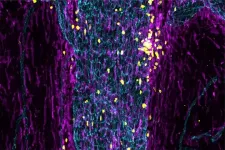In a report presented today to Patricia Espinosa, Executive Secretary of the United Nations Framework Convention on Climate Change (UNFCCC), report authors outlined some of 2020's most important findings within the field of climate science, ranging from improved models that reveal the need for aggressive emission cuts in order to meet the Paris Agreement to the growing use of human rights litigation to catalyze climate action.
The report alleviates some worries that the climate system would be more sensitive to carbon dioxide than previously assumed, which were raised as results from the latest climate models were published from 2019 and on, but it also excludes the range of low climate sensitivity. This means that scenarios with low CO2 mitigation are highly unlikely to deliver on the Paris Agreement targets. The report also points out a number of growing risk factors including emissions from permafrost that are currently not considered, concerns about weakening carbon uptake in land ecosystems, and climate change impacts on freshwater and mental health.
"This series is a critical part of our mission to get the latest science to decision makers in an accessible format to help accelerate transitions to sustainability," says Wendy Broadgate, Future Earth Global Hub Director, Sweden. "Worsening wildfires, intensifying storms, and even the ongoing pandemic are all signals that our relationship with nature is deteriorating, with deadly consequences."
The 10 New Insights in Climate Science 2020 report was prepared by a consortium of 57 leading researchers from 21 countries. As a partnership of Future Earth, the Earth League, and the World Climate Research Programme (WCRP), the series synthesizes the latest sustainability research for the international science-policy community, with annual installments since 2017.
"To cope with future climate change, we require detailed knowledge about the functioning of the climate system, and actionable information has to be developed about regional to local climate change and its impacts," says Detlef Stammer, Professor at the University of Hamburg and Joint Scientific Committee Chair of the World Climate Research Programme. "This report provides several examples of important progress in both categories."
This year's top insights are below:
1. Improved understanding of Earth's sensitivity to carbon dioxide strengthen support for ambitious emission cuts to meet Paris Agreement: The climate's sensitivity to carbon dioxide - how much the temperature rises with a certain increase of emissions - is now better understood. This new knowledge indicates that moderate emission reductions are less likely to meet the Paris climate targets than previously anticipated.
2. Emissions from thawing permafrost likely to be worse than expected: Emissions of greenhouse gases from permafrost will be larger than earlier projections because of abrupt thaw processes, which are not yet included in global climate models.
3. Tropical forests may have reached peak uptake of carbon: Land ecosystems currently draw down 30% of human CO2 emissions due to a CO2 fertilization effect on plants. Deforestation of the world's tropical forests are causing these to level off as a carbon sink.
4. Climate change will severely exacerbate the water crisis: New empirical studies show that climate change is already causing extreme precipitation events (floods and droughts), and these extreme settings in turn lead to water crises. The impact of these water crises is highly unequal, which is caused by and exacerbates gender, income, and sociopolitical inequality.
5. Climate change can profoundly affect our mental health: Cascading and compounding risks are contributing to anxiety and distress. The promotion and conservation of blue and green space within urban planning policies as well as the protection of ecosystems and biodiversity in natural environments have health co-benefits and provide resilience.
6. Governments are not seizing the opportunity for a green recovery from COVID-19: Governments all over the world are mobilizing more than US$12 trillion for COVID-19 pandemic recovery. As a comparison, annual investments needed for a Paris-compatible emissions pathway are estimated to be US$1.4 trillion.
7. COVID-19 and climate change demonstrates the need for a new social contract: The pandemic has spotlighted inadequacies of both governments and international institutions to cope with transboundary risks.
8. Economic stimulus focused primarily on growth would jeopardize the Paris Agreement: A COVID-19 recovery strategy based on growth first and sustainability second is likely to fail the Paris Agreement.
9. Electrification in cities pivotal for just sustainability transitions: Urban electrification can be understood as a sustainable way to reduce poverty by providing over a billion people with modern types of energy, but also as a way to substitute clean energy for existing services that drive climate change and harmful local pollution.
10. Going to court to defend human rights can be an essential climate action: Through climate litigation, legal understandings of who or what is a rights- holder are expanding to include future, unborn generations, and elements of nature, as well as who can represent them in court.
"Given the urgency of reducing greenhouse gas emissions and removing carbon from the atmosphere to keep our planet from overheating, it is critical to inform the decision-making process for immediate action by the newest insights from climate science," says Peter Schlosser, Vice President and Vice Provost of the Julie Ann Wrigley Global Futures Laboratory at Arizona State University and co-chair of the Earth League.
While this report confirms the continued amplification of key environmental impacts, it also points to opportunities that arise from new insights in climate change economics and governance, and the possibility of using climate litigation. 2021 will be a critical year to act if the world is to achieve the Paris Agreement targets and preserve humanity's critical climate niche. The estimated investment costs in 2020-2024 to deliver on the Paris Agreement are only estimated to roughly half of the post-pandemic stimulus packages that have been announced so-far. However, the report points out that governments are not seizing the opportunity to leverage current events for a positive change. For instance, G20 governments are committing 60% more to fossil fuel-based activities than to sustainable investments.
"All parts of our world are affected by the climate crisis, and each continent, country, city and village depends on how well we manage Earth's natural carbon sinks - that's what the overwhelming scientific evidence shows," says Johan Rockström, Director of the Potsdam Institute for Climate Impact Research and co-chair of the Earth League. "Because we all share the same small planet, and there are planetary boundaries, we cannot rely on nature to support us if we do not support nature. Just look at the stressed tropical forests that so conveniently have been taking up huge amounts of CO2, but this might now come to a peak and decline. From all these scientific insights, one political insight should arise: if we want to have a chance of stabilizing our climate, for the sake of our own safety, the last chance to reduce greenhouse gases is now."
INFORMATION:
ADDITIONAL QUOTES:
"These new findings highlight several different processes that cause even higher projected permafrost emissions," says report co-author Gustaf Hugelius at Stockholm University. "Unfortunately, permafrost emissions are not accounted for in international negations on emission reductions. Basically, we need to consider permafrost as an additional emitter that will grow rapidly unless rapid action to reduce global emissions is taken."
NOTES TO EDITORS:
Press Briefing: A press event featuring a keynote address from UNFCCC's Executive Secretary Patricia Espinosa, a presentation by report authors, and a Q&A session will take place at 17:00 CET (15:00 London, 11:00 New York) on Wednesday, 27 January 2021. To register, END


